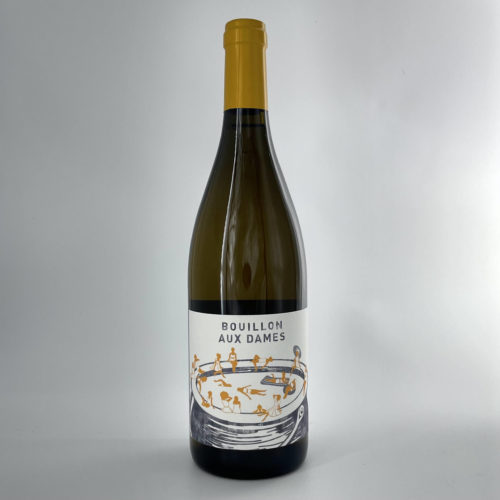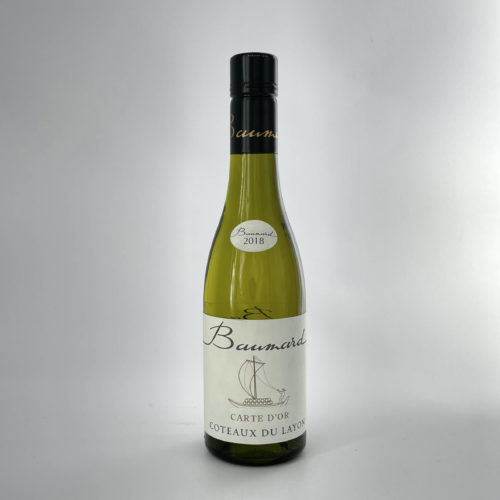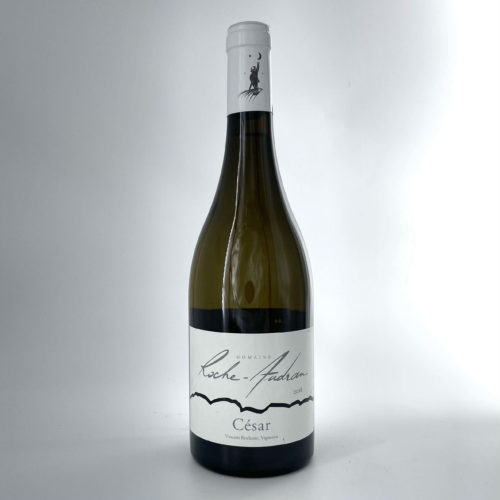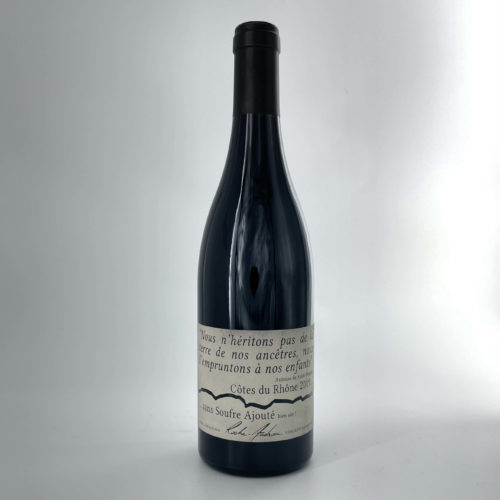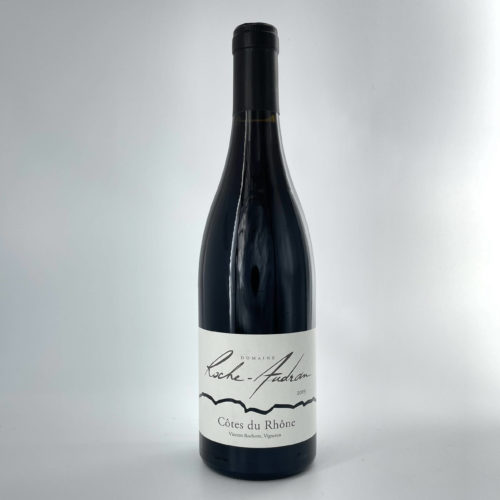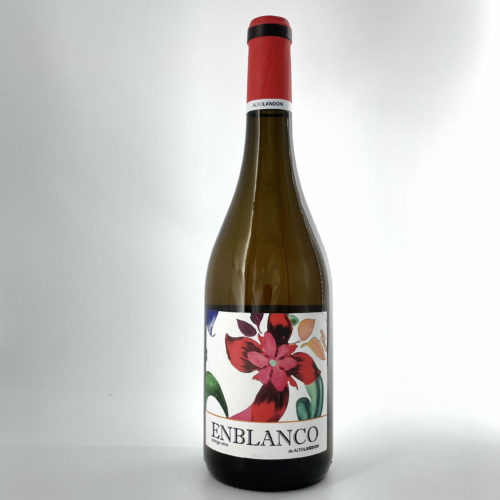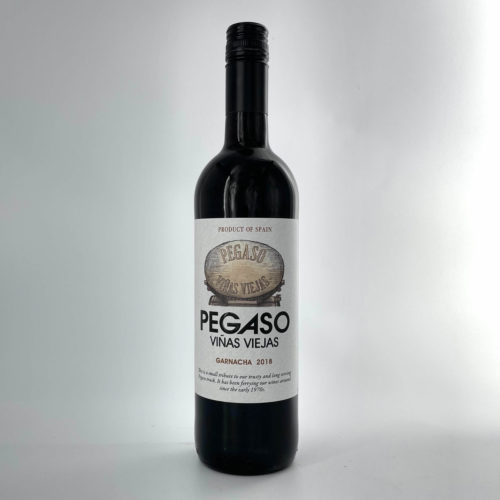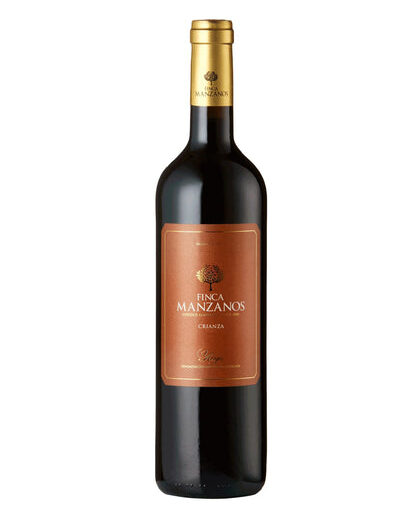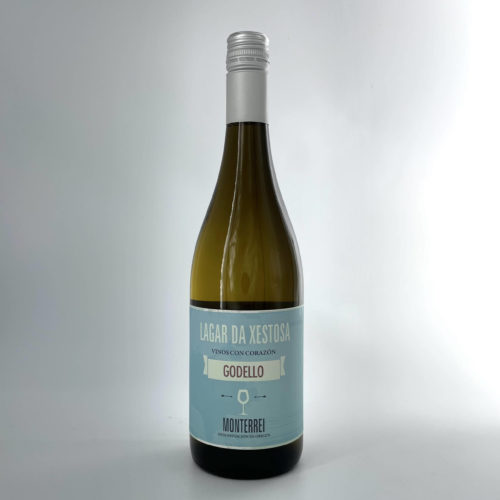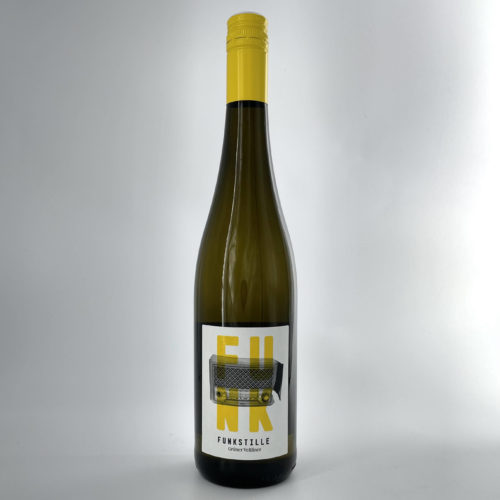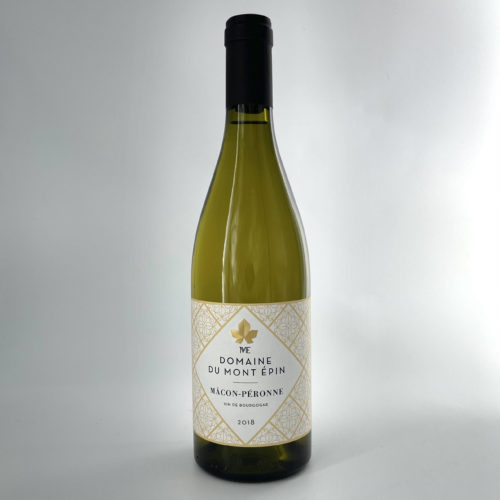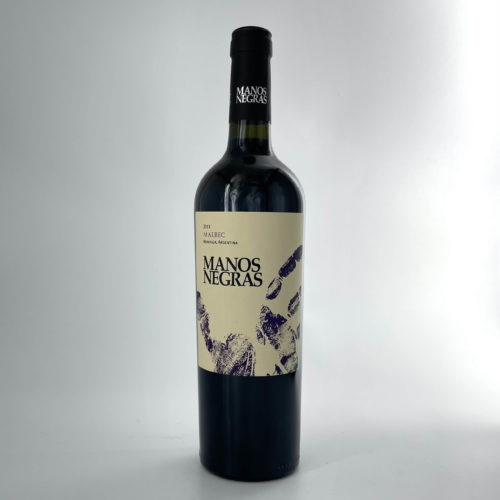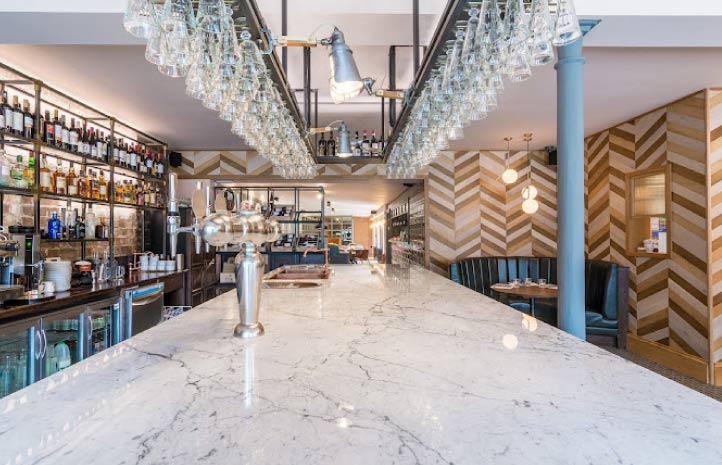Chenin Blanc Bouillon aux Dames, Les Equilibristes, Languedoc, France
Les Equilibristes is the brainchild of this pair as they aim to produce one of a kind, quirky cuvees from small estates all across France. Most importantly, their central ideal is to fashion wines that possess the équilibre (‘balance’). Each year, they visit their grower friends and purchase a select amount of grapes from which they produce terroirs-driven, organic cuvees that express a clear identity and sense of place. The results are simply stunning, as Florent (the winemaker) uses little to no added sulphites and other minimal intervention techniques to allow the grapes to truly speak for themselves.
Coteaux du Layon, Domaine des Baumards, Loire Valley, France
One of the Loire’s most lauded producers, Florent Baumard has courted controversy by pursuing his own ideas and challenging the status quo.
In a deeply traditional region, Florent’s early adoption of screwcaps and different vine trellising systems marked him out as the enfant terrible of Savennières. His mantra now encompasses a belief in the individuality of each vintage, believing it should be made with minimal intervention to allow the wine to reflect its vintage and unique character. His Savennières from the famous vineyards of Clos St Yves and Clos du Papillon are rich, yet with a balance and elegance that are unrivalled. His top cuvée of ‘Trie Speciale’ is only made in very exceptional vintages when grape quality is optimal. It is a wine full of paradox, honeyed and yet dry, rounded and yet firm. The rich fruit, tremendous weight and concentration ensure that it is a thoroughly memorable experience.
Cotes du Rhone Cuvee Cesar, Domaine Roche-Audran, Southern Rhone, France
Vincent Rochette comes from a long line of grape growers rather than winemakers. In 1998, he bucked that trend by investing in a cellar and the necessary equipment to allow him to vinify his own grapes, which for five generations had been sold to other winemakers in the area. Vincent is an ardent believer in the benefits of biodynamics, fully converting his estate to follow that philosophy in 2006. He uses only natural products in the vineyard and carries out all his work in keeping with the cosmic cycles of the earth, not only among the vines but also in the cellar
Cotes du Rhone Nature, Domaine Roche-Audran, Southern Rhone, France
Vincent Rochette comes from a long line of grape growers rather than winemakers. In 1998, he bucked that trend by investing in a cellar and the necessary equipment to allow him to vinify his own grapes, which for five generations had been sold to other winemakers in the area. Vincent is an ardent believer in the benefits of biodynamics, fully converting his estate to follow that philosophy in 2006. He uses only natural products in the vineyard and carries out all his work in keeping with the cosmic cycles of the earth, not only among the vines but also in the cellar
Cotes du Rhone, Domaine Roche-Audran, Southern Rhone, France
Vincent Rochette comes from a long line of grape growers rather than winemakers. In 1998, he bucked that trend by investing in a cellar and the necessary equipment to allow him to vinify his own grapes, which for five generations had been sold to other winemakers in the area. Vincent is an ardent believer in the benefits of biodynamics, fully converting his estate to follow that philosophy in 2006. He uses only natural products in the vineyard and carries out all his work in keeping with the cosmic cycles of the earth, not only among the vines but also in the cellar
Enblanco de Altolandon, Manchuela, Spain
As the lands starts to rise, inland northwest of Valencia, you will find Roselia Molina heading up Bodegas Altolandon.
The property consists of 120 hectares with the winery resting right in the centre, not only making it aesthetically satisfying but also extremely practical. At 1,100 metres above sea level, the altitude serves to benefit the grapes with large diurnal variations which encourage even ripening and also helping retain their natural acidity. Organic methods are used to manage the vines utilising only natural fertilisers and some green pruning to further guarantee the quality of fruit prior to hand-harvesting. The grapes are vinified as naturally as possible with native yeasts and little other intervention. The wines are then aged in French oak and some in clay amphora to retain purity, but build complexity.
Garnacha Pegaso, Bodegas Manzanos, Vino de Espana, Spain
On the border between Rioja and Navarra, Victor Manzanos carries on the work of the four generations before him.
Adding in significant amounts of ambition and energy, Victor Manzanos is at the forefront of the new Rioja – championing a modern interpretation of its varieties through his wines. As a grower, Victor is keen to prove that Rioja Baja has its own distinct character and should not be judged as inferior to Rioja Alta or Alavesa – just different. With brands also in Navarra, Victor and winemaker Borja are creating wine that is prized and cherished, from old vines growing on poor chalk and limestone soils which give wild berry and cassis flavours to the reds.
Rioja, Bodegas Manzanos, Finca Manzanos Crianza, DOCa, Spain
On the border between Rioja and Navarra, Victor Manzanos carries on the work of the four generations before him.
With over 250ha of owned vineyards at his disposal, including some of the oldest vines in Rioja, Bodegas Manzanos is fortunately placed to put both the sub-region of Rioja Oriental and the name Manzanos firmly on the map as one of the most important areas and producers in Rioja. This range of wines is a modern take on the traditional landscape of Rioja, championing the native grape varieties, Tempranillo, Viura and Garnacha. The team is the youngest in the region, a talented a group of people with the sole purpose of making wines that people will enjoy.
Godello, Lagar do Xestosa, Galicia, Spain
In 2002 Adegas Pazo do Mar was created. It was born of a 30-year family vocation, which respects and admires the age-old Ribeiro wine- making traditions, but has a fresh spirit and vision for the future.
Adegas Pazo do Mar is dedicated to the production of native varietals, including Godello. They are in pursuit of the perfect balance between traditional and modern methods to achieve characterful wines with distinctive freshness. Their commitment to quality led to Pazo do Mar recently investing in the very best of oenological technology.
Traditionally each generation of our family had used this historic site as their initial launching pad as each embarked on its particular quality crusade; but when it was our turn, in the early 2000s, we decided on a totally fresh start not just philosophically (our tenets to respect nature and go back to the old ways) but in a location of our own – with Alejandra running exports and communications, Marco the viticulturist, and Richard the oenologist.
Gruner Veltliner Funkstille, Austria
We all need a little ‘Funkstille’ (radio silence) in our life now and again.
Kick back and take a moment to enjoy the silence with a glass of Grüner Veltliner. With its subtle exotic hints, ripe pear and fresh citrus flavours, it’s a dry wine with complex flavours. The palate is rich with flavours of melon and grapefruit with a refreshing, zippy finish.
Macon Peronne, Domaine du Mont Epin, Burgundy, France
Richard and Stéphane Martin, the brothers behind Domaine de la Croix-Senaillet produce this wine. After freak weather patterns disrupted their harvest in 2015, they decided to take on two new vineyard sites in nearby Clessé. This allowed them to experiment with a different terroir, as well as expand their range with the incorporation of a number of new wines.
Malbec Manos Negras, Uco Valley, Mendoza, Argentina
Alejandro Sejanovich is arguably Argentina’s most knowledgeable viticulturist, working as vineyard director for Bodega Catena Zapata for 16 years, he pioneered high altitude vineyard planting and conducted ground breaking research on Mendoza Malbec clones.
Manos Negras focuses on latitude winemaking, planting Torrontes in the northern stretches of Cadayate in Salta, Pinot Noir in the southern-most region of Neuquen in Patagonia and cultivates 50 year old Malbec vines in the prized Altamira appellation in the Uco Valley.

